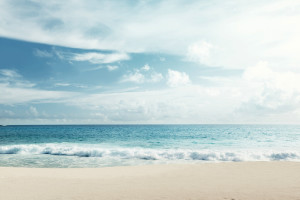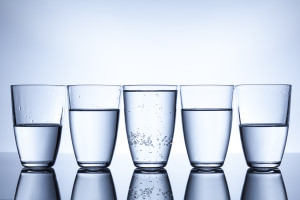More than half of your body—55 to 60 percent—is composed of water. When that drops by as little as 1.5 percent below your optimal level, you are mildly dehydrated, your energy level decreases and your metabolism slows down. You may not realize it, but you’re losing water all day—even when you’re not sweating, you exhale tiny amounts of water vapor in every breath. Surprisingly, feeling thirsty is not the only, or always the first, sign that you are mildly dehydrated. Here are seven other indications that you need to drink up.
Hunger. The signals your brain sends when you need calories and when you need fluids originate in the same place, and can be mistaken for each other. When you’re dehydrated, your liver holds on to its glycogen reserves, an essential source of energy for you. Your body begins to crave food when sufficient glycogen isn’t available to burn.
Fatigue. As your metabolism slows, your body begins to conserve its energy, leaving you feeling tired. Mild dehydration also reduces the volume of blood in your body, forcing your heart to work harder to pump oxygen and nutrients to all of your cells. When your heart is working less efficiently, you may feel exhausted even though you haven’t exerted yourself very much.
Headaches. The reduced volume of blood caused by mild dehydration also means less oxygen reaches your brain with each beat of your heart. In response, the blood vessels in your brain dilate to bring in more oxygen. Dilated blood vessels may lead to a headache.
Bad breath. Your saliva has antibacterial properties which prevent nasty microbes that are the source of bad breath from setting up residence in your mouth. Dehydration reduces the volume of saliva you produce, often resulting in unpleasant odors in your mouth.
Dark urine. The most visible sign of mild dehydration is evident when you go to the bathroom. Pale yellow or green urine indicates that you are well-hydrated. As your body’s fluid levels decrease, the color becomes noticeably darker, a sign that you need to drink more water.
Constipation. Your digestive tract relies on fluids to help move waste through the system. If you’re feeling stopped up, dehydration may be the cause and more fluids can be the cure.
SOLUTION: To stay at your peak, you need to replenish your fluids throughout the day. Women need eight to 12 cups of water daily, men about 11 to 15 cups. Plain water is the best way to rehydrate—it’s quickly absorbed and calorie, fat and carb free. Ice water can feel refreshing, but it will sit in your stomach until it warms up. When you need to rehydrate in a hurry, go with fluids that are closer to room temperature.
The post How to Know if You’re Dehydrated appeared first on The Leaf.




Comments
Post a Comment